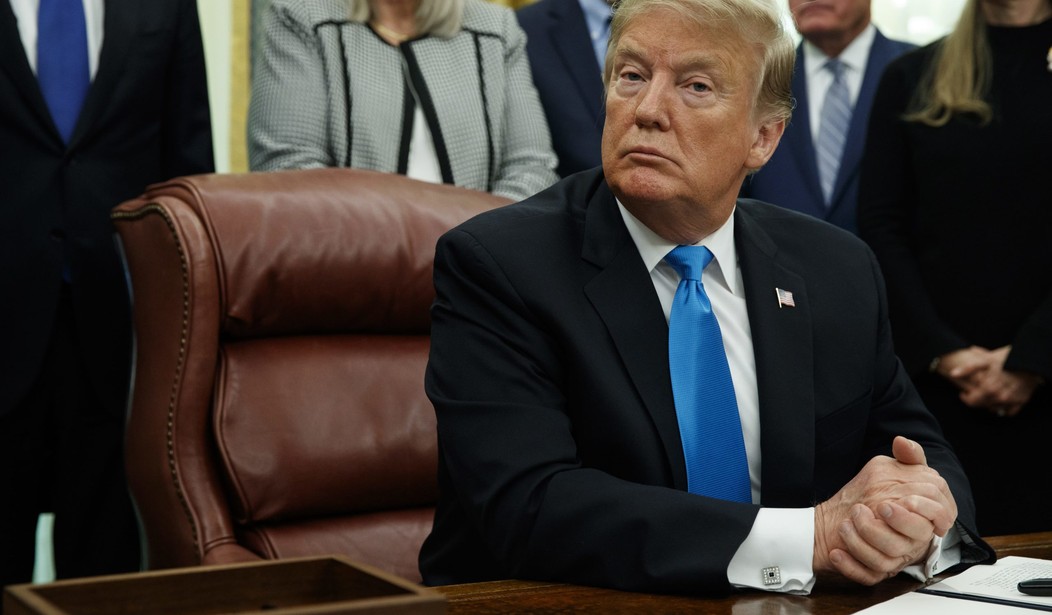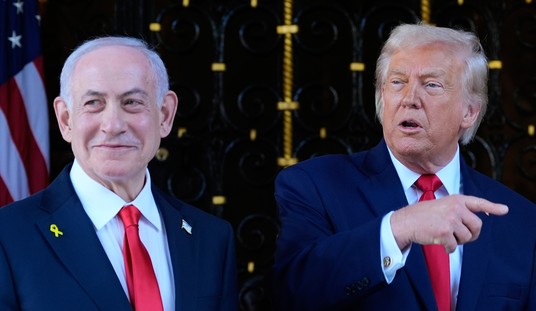Rarely does a U.S. president deserve credit for an economic expansion. The U.S. economy typically heals itself despite the best efforts of the government to damage it. One example is the Reagan recovery of the 1980s, impelled by the supply-side tax cuts championed by our greatest postwar president. Another is the Trump recovery of 2018. More than 100% of all jobs created in 2018 came from small businesses, while larger exchange-listed businesses shed jobs. The surge in small business confidence after Trump’s election and his late-2017 tax cuts unleashed the animal spirits of small entrepreneurs and produced 3% economic growth after eight years of Obama’s stagnation. (See my Asia Times analysis today for a surprising take on today’s lower-than-expected employment report.)
That’s like Babe Ruth pointing to the left-field bleachers and knocking a home run into them. It’s hard to argue that he didn’t do it on purpose. Americans approve of Trump’s handling of the economy by a margin of 56-43, but it should be higher. He restored growth and employment, and incomes are rising as a result.
That’s the good news.
The bad news is that the small businesses who create most of the job are located mainly in lower-paying sectors, for example, leisure and hospitality, health services, and what the Labor Department calls “professional and business services,” a lot of which involves outsourcing of corporate jobs to smaller contractors. The biggest gains in pay have occurred in the worst-paid jobs, like fast food and retail.
Small businesses like fast-food franchises can’t pass on higher wage costs to consumers, so they have cut back on hiring. Leisure/hospitality employment rose by 65,000 in December and 89,000 in January, but remained unchanged in February. That was the single biggest reason for the hiring bust in February.
As wages rose in the leisure/hospitality sector, employment growth fell, as the above chart makes clear. The same is true in other sectors. A lot of commentary on today’s disappointing employment report asks if wage gains can continue in the face of less hiring. The opposite is the case: higher wages are the cause of slower employment growth.
That’s why a small business hiring boom isn’t enough, because small businesses, on the whole, don’t have the capital to generate productivity growth.
Meanwhile, large U.S. corporations are cutting back on labor as well as capital, spending more money buying back their own shares than on capital expenditures. According to Citibank, stock buybacks now exceed Capex for the first time since 2007.
Now, there’s nothing immoral about companies buying back their own shares, that is, returning capital to shareholders. There are lots of companies who should do that, so that capital can flow to more compelling investment opportunities. But there’s something drastically wrong when listed companies as a whole return more money to investors than they plow back into their businesses.
President Trump had a good first two years where the economy is concerned, and deserves the country’s gratitude. But the failure of large corporations to increase productivity-enhancing investment will contribute to a much slower rate of growth in 2019.
The CapEx bust also bears on our loss of competitive position to China. Cisco, which used to dominate internet communications hardware, is sitting on $72 billion in cash, more than China’s Huawei spent on R&D in the past six years. But Huawei did spend the money and as a result, has become the 800-pound gorilla in the 5G broadband business. It’s going to take more than tax cuts to turn this around, as I wrote in this space yesterday.
An important reason for the CapEx bust is the trade war. Supply chains are global, and companies don’t know where they will land, so they have postponed investments. I support the president and I want him to succeed, but I don’t think the tools he has chosen will get the results he wants. On the contrary, the trade war is hurting the U.S. economy, and serves as a distraction from the greater tech war, which isn’t going well.














Join the conversation as a VIP Member